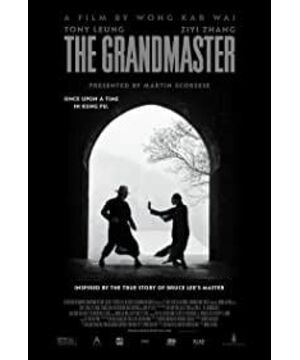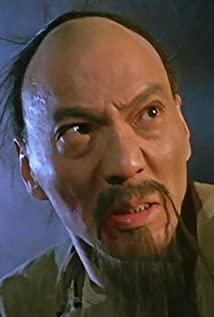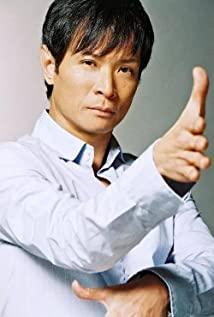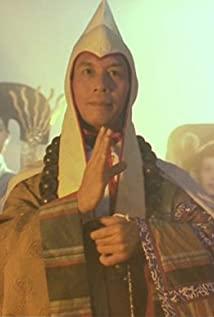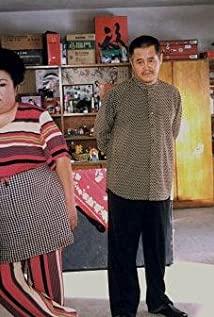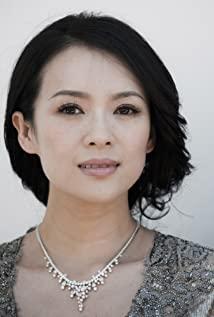1.
The fighting in the rain at the beginning of the rain may be an analogy to "The Matrix 3". "Rain" can have ever-changing meanings. In "The Grand Master", at this time, Ye Wen is in the "spring" of his life, and everything goes well. This fight in the rain is exactly when Ye Wen is proud of the spring breeze. It also implies that the crisis has descended and the road of life has become muddy. . Afterwards, Ip Man and his family embarked on the road of traveling away from home in the heavy rain. The dense raindrops are like sharp knives, stabbing the viewers one by one (the 3D version enhances this effect, and the raindrops are very sharp). The seemingly soft and sentimental raindrops replaced the blood of the fighting. During the fights at the Wengong 2 and Mas 3 railway stations, floating cotton wool was used instead of blood plasma, which reflected the rules and restraint of the martial arts at that time. The technique destroys the artistic conception of the film and the true meaning of martial arts.
The fighting in the rain in "The Matrix 3" is very beautifully done. "Rain" is used to express the "qi" of the East. Although it visually presents the usual routine of Western action films, it has an extra layer of oriental connotation. "Rain" has become a medium to transmit invisible "qi" and "force". The "rain" of "The Grandmaster" is restrained and sharp; the rain of "The Matrix" is a medium of expression and a visual presentation of "qi". The former can be related to the situation of the martial arts and the situation of the masters at that time, and the latter increases the difficulty and excitement of the fight.
2.
The design of Jin's "Golden House" was only discovered this time. There are big rivers and lakes hidden in the small golden house, which also symbolizes the dusk of martial arts. Everyone in the golden house is covered with a layer of dusk color, whether it is learning, fighting, regret, admiration... "Golden House" is the sanctuary of martial arts in troubled times, and there is still the last bit of chivalrous spirit in the golden house. "Dusk" is the main color of Ye Wen, and "black and white" is the main color of Gong Er. The martial arts in Ye Wen's heart is a world, even if it is the end of the world; the martial arts in Gong Er's heart is a family, even if that family exists in name only. They are all dying people. Gong Er's "black and white" made her always sharp as a knife, while Ye Wen was like a star in the sky, watching the world from a distance. Although "Dusk" is full of sadness and regret, it is also resplendent and moving.
In the "Golden House Night Banquet", the black and white on Gong Er's body is incompatible with the pink and pink beauties around him. There is a shot that looks at Gong Er from the perspective of an aunt. Gong Er's body is slightly stiff, his eyes are stubborn, and he has a strong abstinence temperament. Those aunts looked different. This shot has already shown the end of Gong Er-a road that deviates from the secular is bound to be taken. Ye Wen to her was a door into the world, and she stubbornly closed the door again. Gong Er's "black and white" and Ye Wen's "dusk" appear alternately, and are often wrapped in dusk. The exposed blade in the apocalypse will be mercilessly corroded by time. Therefore, Gong Baosen would say that the true meaning of the knife is not to slash, but to hide. Hacking is a kind of stubbornness and a chronic self-destruction. Gong Er's "black and white" cannot be hidden, and Ye Wen's "Dusk" cannot be her scabbard.
This composition image is "The Last Supper", which is actually the last formal dinner in Gong Er and Ye Wen's life. After living in a foreign land, the two of them met with regrets. After the golden house night banquet, the two began to sympathize with each other, so this is such a gorgeous and beautiful meal, and it is also the last feast in the dusk of martial arts.
3. The "black and white" of Black
White House II is inseparable from Ye Wen's "Dusk". Only in the complete white mountains and black waters can her "black and white" be completely complete. The martial arts in Gong Er's heart is so black and white, once she is in a foreign land, her martial arts will cease to exist. This is a self-destructive tragic figure. When she walked out of the world that Gong Baosen laid out for her, she couldn't stand.
In the revenge section of the train station, Gong Er and Masan are covered in the color of "twilight", and they actually have something in common. They are all exposed blades, and without the scabbard of Gong Baosen, they are destined to rust and decay in the chaotic world. The reason why Ye Wen was appreciated by Gong Baosen was because he had both a blade and a knack for hiding. Gong Er and Ma San believed in "I would rather think about advancing than stop", and it is this "Jing", a fearless "Jin" that looks like a train, so that they must live in the slaughter and not stop. Ask about life, regardless of what's behind you. Gong Er and Ma San are not the ones who have understood the "old ape hanging on the seal and looking back". They only have black and white, winning and losing, and the result in front of them. When they look back, they will see their own powerlessness and confusion. back. "If there were no regrets in life, it would be so boring." It's just that the farther you go, the less you dare to look back and the less you will admit that regrets always outweigh fun.
In fact, in the twilight, how can it be so easy to distinguish between black and white, but the heart can't get over that hurdle, thinking that the fight is a breath, in fact, it is just a matter of face. Gong Er and Ma San both lived up to their face. Their "qi" was not the tone of lighting the lamp, but the qi of their face, the qi of winning or losing, and gradually they lost their "me" and lost that spirit. Dotted "true". Gong Er's loneliness also creates a safe world for herself, where she doesn't have to face all beings, she doesn't have to be courteous to the world, but she can be a father's little daughter with peace of mind.
Some people live to be the face, and some people live to be the inner child. No matter how you live, in the twilight of the end, it is a tragedy.
4. Ip Man
Ip Man is more like a bystander, a storyteller. I noticed a detail, when Ip Man fought with people in Foshan, he rarely damaged public property, so far. When he arrived in Hong Kong, everything changed. Ip Man was like a man in a cage (see the paragraph in the martial arts hall, the greasy glass windows and railings form the look and feel of a cage) and had to adapt to the new rules of survival. In the Jinlou, Masan treats his opponents ruthlessly and cruelly, and regards the results as as significant as life and death; Ye Wen spends a lot of money, even in the face of Gong Er's repeated offenses, he still maintains a gentleman's demeanor; in the Hong Kong martial arts hall, Ye Wen is confused, and he There has been a change, wearing a suit, becoming a passer-by, and no longer behind.
Facing the new situation, Ye Wen did not completely cut off the way back like Gong Er, he chose to continue walking. If you say "Don't think about entering", Ye Wen is really "entering", Gong Er and Masan have already "stopped" for those face-saving matters. That's why things are so interesting. You think hacking is moving forward, but it's actually "stopping." You think that forbearance is retreating, but it's actually "advancing." The so-called "face" means that he does not understand this pair of dialectics, while the "lizi" means to know how to hide. Only by hiding can the blade be kept sharp and not corroded. Ye Wen said that the martial arts in his heart is a world, that is, "all beings". Wong Kar-wai also said in the documentary "Master of the Generation" that the master he understands is a kind of inheritance. Ip Man's "inheritance" of Wing Chun is the real progress.
There is also the issue of theme planning. I once told people that planning is nothing more than a "choice". For the subject of Ye Wen, both "Ip Man" and "The Grand Master" can be developed. This question of "choice" may be explained by Xu Haofeng's words:
"Most films in the history of martial arts films are of the same nature as today's blockbusters. They are not narrative films, but parties. The parties have no values, only slogans. 'The Chinese are not the sick man of East Asia' and 'New Year's greetings to you' are of the same nature. The core of a story It is to identify and analyze values, and the core of a party is to gather scenes and famous characters."
"The Grand Master" is not a reader's text, it borrows the type elements of "Kung Fu", and talks about "Kung Fu", that is, time. Ye Wen's time is inheritance and advancement, Gong Er's time is revenge and remorse, and the time of other "grandmasters" is consumption and wear and tear. The sense of time in Wing Chun lies in the fact that from Ip Man to Bruce Lee, from Foshan to all over the world, countless individual points are connected into a large plane, not only an isolated timeline, but a movement. This sense of movement is the best interpretation of "Kung Fu". Ye Wen's trajectory is "Kung Fu"; Gong Er's trajectory is "Kung Fu". "Kung Fu" transcends himself, heaven and earth, and connects all living beings. This is why Ye Wen can be called a master of a generation.
Three group photos (family portrait, Chinese Samurai Association, Ye Wen and his disciples), Ye Wen went from himself, to heaven and earth, and to all beings. This is time and effort.
A master is not a master, but an inheritance. In inheritance, the most difficult thing is to fight with time.
5. The disappearance of Wu Lin
Gong Er's obsession and fascination made her cut off communication with all sentient beings. Those former masters who fled to Hong Kong have lost the world they used to live in, and naturally they will be lost to all living beings. Ding Lianshan said that Ye Wen was "too late", and he was lamenting that the heaven and earth no longer existed in the past, and all martial arts masters were reduced to common people in the market.
In the dusk of martial arts, the masters who used to call the wind and call the rain fled to a foreign land to struggle for survival. The "dog" on the dark street appears repeatedly in the film, which is a bit of a metaphor of "the lost dog". One line of the sky is like this, so is Ding Lianshan. They are hidden in the bigger rivers and lakes, and their glory is no longer there. They can only look back on the past with the sinking sunset and sigh about life. When it comes to Ding Lianshan, he must be the one who hides the deepest. In the 3D version, his lines are judgments on the "disappearing martial arts". Those right and wrong are false, only the martial arts in everyone's heart is true. So, what are those kindnesses and grievances, and what is the so-called "martial arts"? Only "If you don't forget, there will be echoes", only "the encounters in the world are reunions after a long absence", and only "I" is true. At the end, there is a section of Ding Lianshan pulling the erhu. He really became "I", "Wulin" disappeared, and "I" will always be there. He truly lived among all beings, not in the martial arts. He walked out of the illusory world and truly saw all beings. Thinking of Zhao Benshan's recent situation, I really have a different feeling in my heart.
So martial arts disappeared? No, because it never really existed, it was "I" that existed, not martial arts. Something that has never existed, will naturally pass away with the wind.
6. Knives and Stars
This is a book by Xu Haofeng. After reading it, I can understand more than half of "The Grandmaster". As mentioned above, Gong Er and Masan also have many "grandmasters", they are knives; Ye Wen is a star who looks at all living beings from afar, and a practitioner who walks in "Kongfu". The martial arts described by Xu Haofeng is not a party, but a "ceremony"; the biggest character gap in "The Grandmaster" is not family hatred and national hatred, but the collapse of ritual and music, which is the biggest fear of people. Ye Wen carried it, Gong Er was unable to carry it; Wing Chun carried it, and the whole martial arts generally did not carry it. This is the greatest challenge to "inheritance", both revolution and destruction.
Therefore, "The Grandmaster" is definitely not just a "kung fu film", it contains the deepest fear of the Chinese people - change, and more questions about the so-called "values". "Values" is not a moral yardstick, but a state of life, which has nothing to do with ideology or national system. With the lines in the movie, this is a breath, save a breath, light a lamp, and there will be people when there is a lamp.
And this tone is "I".
View more about The Grandmaster reviews


